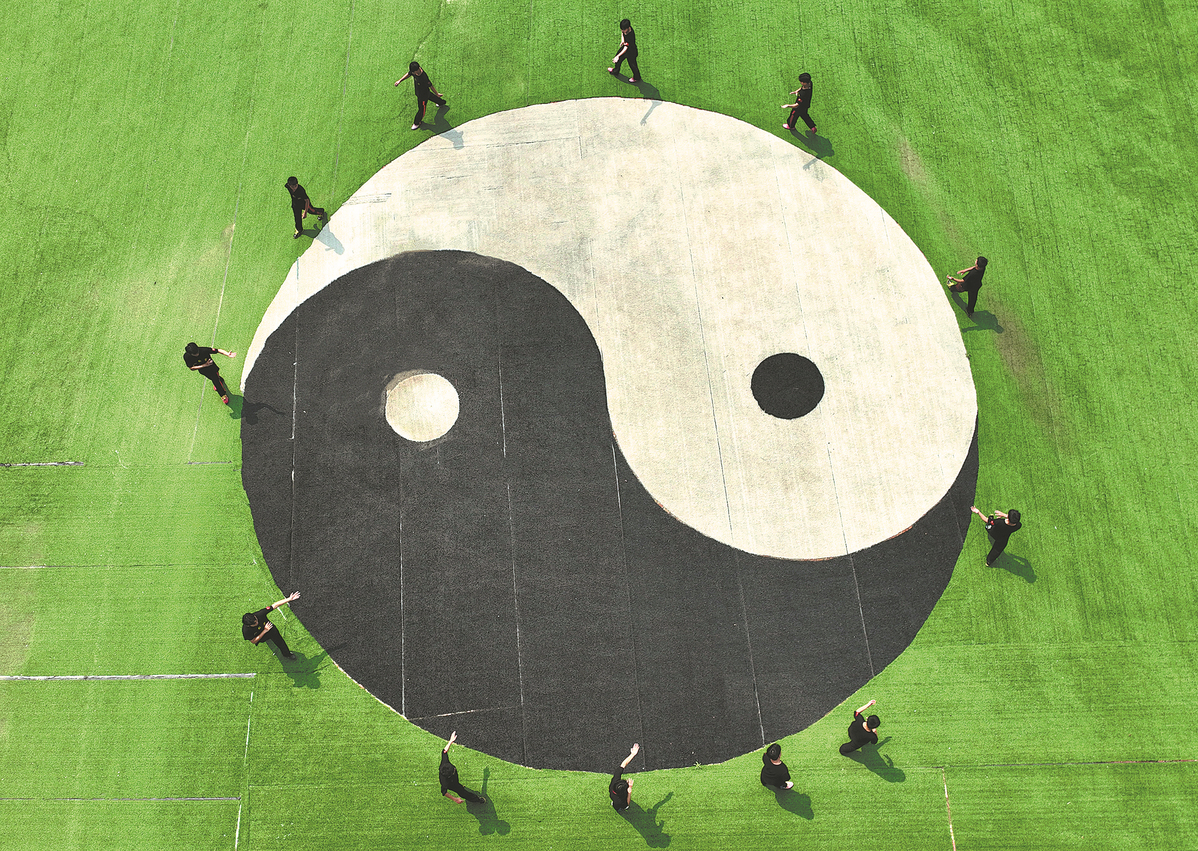

An exhibition of paintings of ancient Chinese characters was held on July 13 in Addis Ababa, the capital of Ethiopia, with the aim of enhancing people-to-people and cultural exchanges.
Based on the classic I Ching or The Book of Changes, the display brought together the art of Ethiopia's Dawit Muluneh and famous calligrapher Wu Jiuyi, who produced examples of calligraphy on the spot.
Speaking at the event, its coordinator Gossa Oda says the exhibition was a platform to showcase cultural commonalities and shared knowledge between the two countries.
"In organizing this exhibition, I wanted to convey the ancient mystery of I Ching, which helps enhance connectivity between Ethiopia and China and promote their shared future. A shared future starts from shared knowledge," says Oda, who is also the owner of the Medemer Africa Art and Sculpture Space, where the 64 paintings are housed.
Oda says such an exhibition would strengthen people-to-people ties and cultural exchanges, emphasizing the importance of knowledge and civilizations for human development.
The paintings depict the 64 divinatory symbols found in The Book of Changes, which represent the day-to-day interaction between man and nature.
"They are meant to share knowledge and feeling with visitors, and descriptions are written in Chinese, English, and Amharic," says Muluneh, who painted all 64 paintings in a year.
He says the exhibition can be considered a stepping stone to promote cultural exchange and create mutual situations for common development between the peoples of China and Ethiopia.
"The backgrounds of the paintings make use of Ethiopian styles and express the ideas of heaven, contention, harvest, hindrance, and relief, among others," says Muluneh, who drew similarities and captured essence from the traditional arts of both countries.
In an interview with Xinhua, Wu says that he was taken by surprise when he saw an Ethiopian artist painting Chinese characters.
"The paintings are meaningful in illustrating that China and Ethiopia both have ancient histories in traditional art," Wu says.
The exhibition attracted members of the Chinese community in Addis Ababa, Ethiopian artists and painters, and school children.